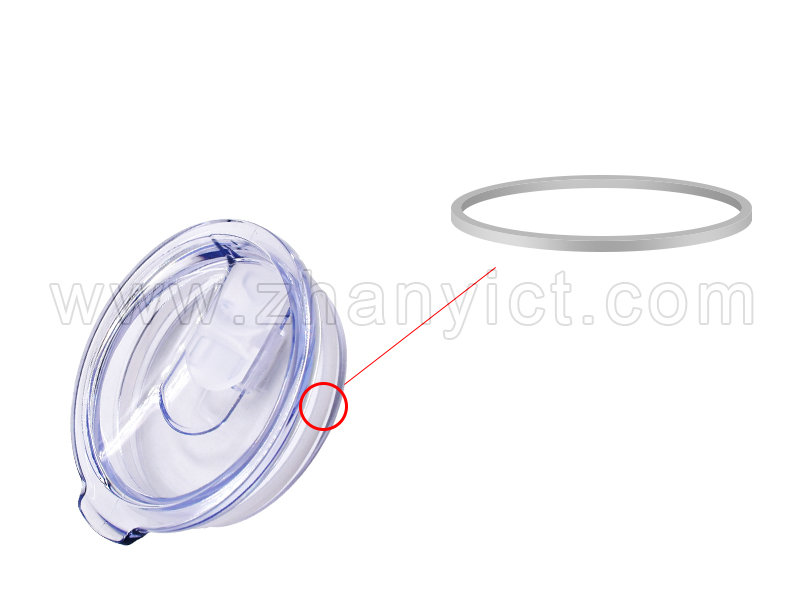Customized Insulated Tumbler Pitfall Avoidance Guide Part Three
Every cup has a story, and life has its warmth. Hello everyone, "Dong Dong's Cup Talk" is here. As the peak season for the insulated tumbler market approaches, the daily business inquiries we receive have gradually increased. Among these inquiries, we’ve noticed that some friends have extensive experience in customizing insulated tumblers, but there are also many who still hold some subjective misconceptions. https://www.zhanyict.com/en/ProductsDetail-VB-10522.htmlToday, we’d like to share some stories from the tumbler industry over the years. To avoid legal issues, we will not use real company names or personal names in our accounts.
Please treat these as stories we’ve compiled. As adults, we all have our own judgment. We hope that after reading these stories, you’ll find some helpful insights for customizing insulated tumblers and avoid some common pitfalls. https://www.zhanyict.com/en/ProductsDetail-VB-10522.htmlWe’ll share these stories in several independent parts, each with its own standalone narrative. Before diving into the stories, if you’ve encountered similar or different pitfalls while purchasing insulated tumblers, feel free to share them with everyone.
(Disclaimer, disclaimer: The following story is told as much as possible from a first-person perspective, but it did not happen at our factory. https://www.zhanyict.com/en/ProductsDetail-VB-10522.htmlThe content is based on accounts from those who experienced it firsthand, and we do not verify the authenticity of the details.)
Story Three: A Nightmare at Customs - Purchaser C (A Foreign Trade Company)
Point of Contact: Factory’s Foreign Trade Business Supervisor
Purchasing Characteristics: https://www.zhanyict.com/en/ProductsDetail-VB-10522.htmlServes various overseas clients, must comply with complex and ever-changing international standards and regulations (such as food contact safety), acts as a communication bridge.
C’s Pitfall Story:
“We” received an order from a major client in the Middle East for 100,000 customized insulated tumblers with intricate embossed designs. The client emphasized compliance with local import standards. After the bulk shipment was sent out, we thought everything was settled. However, when the goods arrived at the destination port, customs conducted a random inspection. A few days later, we received shocking news: the plastic sealing ring inside the lid contained phthalate plasticizers that exceeded the limit by over 50 times! https://www.zhanyict.com/en/ProductsDetail-VB-10522.htmlThe entire shipment was deemed “toxic and hazardous,” stuck at customs, and faced mandatory destruction! To cut costs, the factory had used unidentified, potentially contaminated recycled plastic, possibly sourced from medical waste or electronic scraps. Not only did we lose the entire payment and shipping costs, but we also had to pay hefty destruction fees and fines. The relationship with the client was completely ruined.
Our Pitfall Avoidance Suggestions:
1. Certifications Are Non-Negotiable: For all plastic components that come into contact with food (lids, sealing rings, straws, gaskets), insist that the factory provides valid food-grade safety certification reports (such as FDA, LFGB, EU 10/2011, etc.). Ensure the reports are up-to-date and cover the specific materials used. https://www.zhanyict.com/en/ProductsDetail-VB-10522.htmlIf the factory is uncooperative and unable to provide food-grade inspection reports, the buyer should conduct their own food-grade inspection before shipment.
2. Dual Assurance: “Sealed Samples + Third-Party Testing”: Before production begins, seal samples confirmed and signed by both parties. https://www.zhanyict.com/en/ProductsDetail-VB-10522.htmlSend these sealed samples or random samples from the bulk shipment to internationally recognized third-party laboratories (such as SGS or Intertek) for specific tests on key safety indicators, including heavy metal migration, plasticizers (phthalates, BPA), and overall migration levels.
3. Tighten Contract Clauses: Include strict environmental and safety compensation terms in the contract (e.g., “If material safety issues lead to detention/destruction/claims of the goods, the supplier shall bear all losses and a penalty of 200% of the goods’ value”). https://www.zhanyict.com/en/ProductsDetail-VB-10522.htmlThis will deter the factory from cutting corners.

There are stories in the cup, life has warmth, use a good cup to enjoy a healthy life. We provide OEM business to more than 100 companies around the world, and produce more than 3 million pieces of various stainless steel/plastic cups and pots annually. Honoring promises, keeping reputation, ensuring quality and quantity, and delivering on time are our service principles and our professional commitment. Dongguan Zhan Yi Commodity Technology Co.,Ltd. welcomes global merchants to conduct on-site factory inspections and in-depth cooperation.